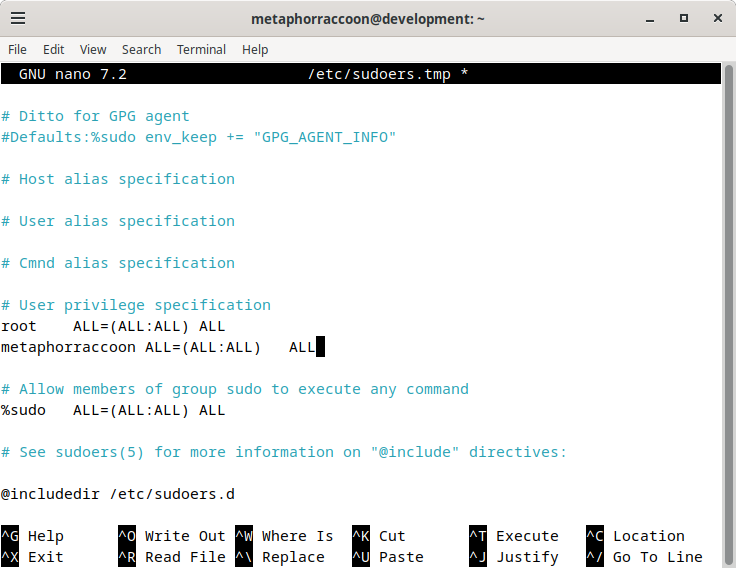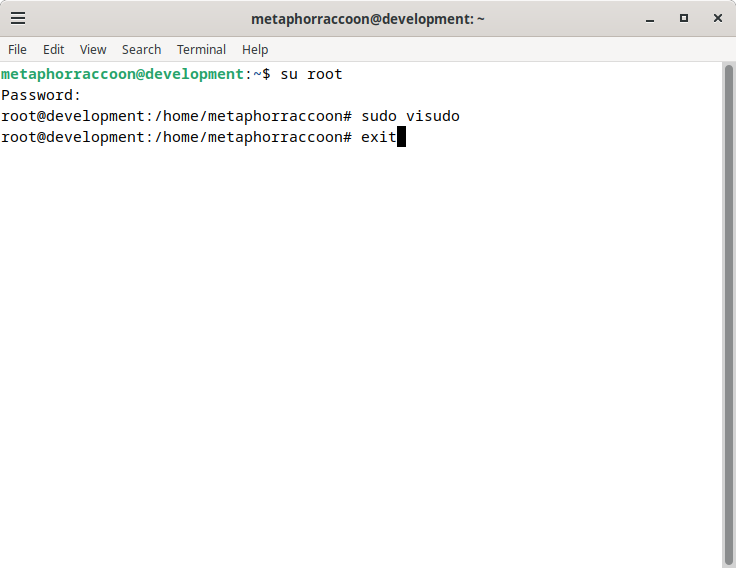Administrator Permissions
On Debian, our user account cannot run commands as Root through the terminal. We will be changing this for simplicity sake, allowing us to prefix commands with 'sudo' to run them as if they were run by root.
Skip this step when using a Raspberry Pi.
We need to open the Terminal application from the side bar of the start menu.
By default, we need temporarily "substitute users" to perform commands as root.
Enter the command:
su root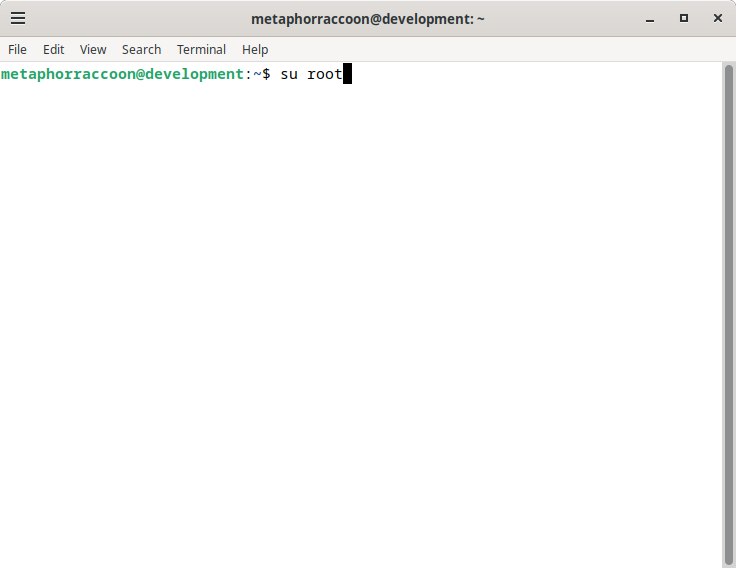 |
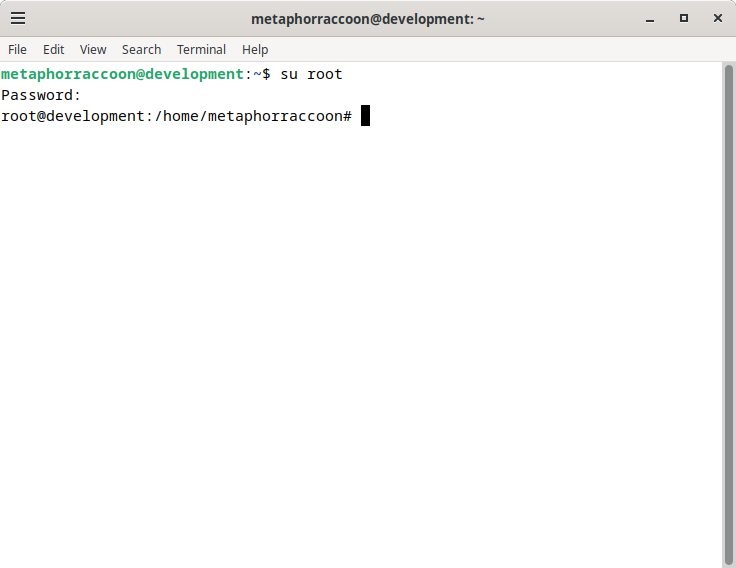 |
We will need to enter the password we chose for our root account during the installation process.
When you are typing a password through the terminal, it will not display that you have typed any characters.
Now that we are acting as the root account, we can configure our user account to have the permissions to run all these same commands.
We will be using an application called "visudo" This command ensures we cannot break permissions on our computer.
Learn more about visudo and the sudoers file.
Enter the command:
sudo visudo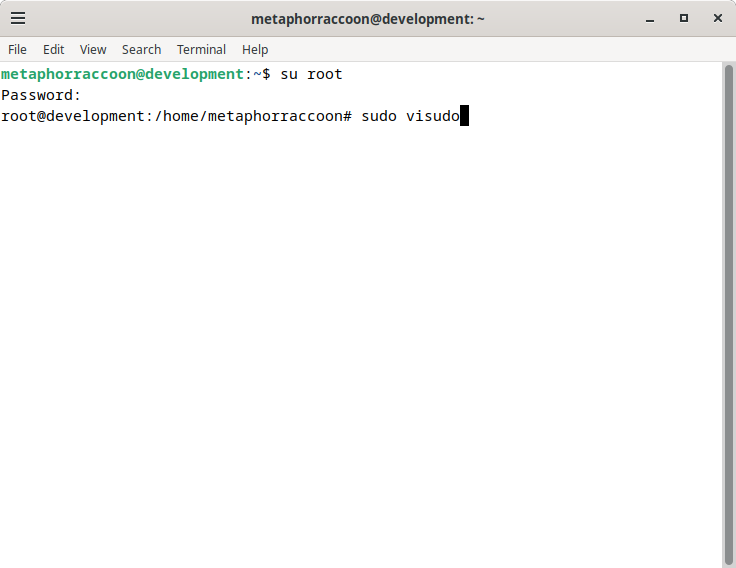 |
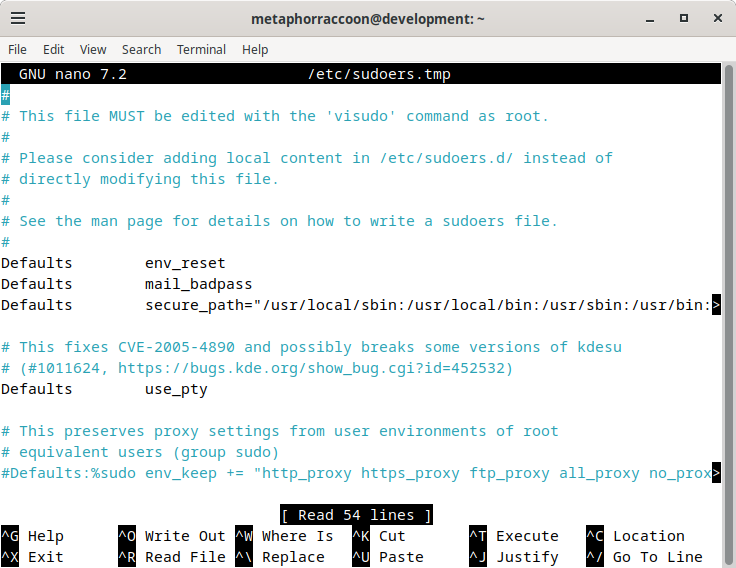 |
Navigate to the "user privilege specification" section using the arrow keys on your keyboard.
Underneath this section, we will be adding our user account that we just created. Change 'username' to the user name you selected for your account while installing Debian.
username ALL=(ALL:ALL) ALLOnce you are completed, hit Ctrl-X to save and Enter to confirm. Finally, we will hit Ctrl-O to quit visudo.
Your user account can now run commands using sudo. You can exit root by entering the command:
exitThis will return you to the terminal for your user account.


